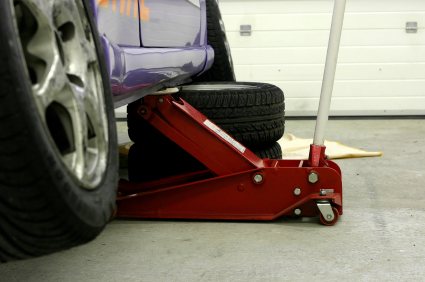 Winter is slowly drawing to its end. Therefore, it is time for you to get your car ready for the approaching summer. Changing seasons often impact the function of vehicles, after all. Among the most obvious elements of your car to inspect are your tires. The tire system is one of the most important in the vehicle - when it comes to stability, efficiency and safety. Still, they also need regular maintenance and upkeep. What can you expect if you don't take care of tires? What can you do to protect them and yourself?
Winter is slowly drawing to its end. Therefore, it is time for you to get your car ready for the approaching summer. Changing seasons often impact the function of vehicles, after all. Among the most obvious elements of your car to inspect are your tires. The tire system is one of the most important in the vehicle - when it comes to stability, efficiency and safety. Still, they also need regular maintenance and upkeep. What can you expect if you don't take care of tires? What can you do to protect them and yourself?
Tire maintenance doesn't have to be a hard task. It generally only takes a few minutes. A simple awareness in this regard can often help you well before any problem might strike.
The Importance of Well-Functioning Tires
Tires are your car's point of contact with the road. Therefore, they are what you might call the car's lifeblood. If something goes wrong in the tire, the car often becomes hard, if not impossible to operate. That might lead to small problems, or, in other cases, catastrophic tire failures.
Should your tire not work correctly, it cannot properly grip the road. Therefore, your ability to control the car might drop. Some of the problems that might arise include:
- You might not be able to maintain stability and control in your lane
- Your ability to stop quickly can drop. Therefore, it might take longer (and more pavement) to stop the vehicle.
- Tire pressure might drop, causing performance to drop and fuel consumption to increase. That's not just an increase in your gas bill. It might prove an undue strain on the car's internal system. That could lead to systems malfunctions and even a drop in your car's value.
When problems like these occur, your risks of an accident or catastrophic car failure might increase. As a result, you might have a higher risk of having to file a claim on your auto insurance. If you do that, then the insurance company might begin to view you as a high-risk driver. They might raise your policy prices, and even cancel your coverage following severe accidents.
What Can Happen to Your Tires
Your tires might fail in a variety of ways. Some of these might occur suddenly, and others, over time.
- The tire's treads will begin to wear down over time. Treads are the ribbed systems on most tires that improve traction and the tire's grip on the road. Worn tread might increase your risk of flats. Furthermore, as tread wears down, your ability to control the vehicle and stop safely will decrease.
- Over time, the air stability in the vehicle, it's tire pressure, will change. Usually, it will drop. Again, as tire pressure drops, your optimal operating capacity will decrease. Furthermore, the improper tire pressure, either too-high or too-low, might increase the risk of blowouts or tire collapses.
- As tread decreases, the tire's rubber components might begin to weaken of fray. Again, the risk of failures or flats might increase here. Tire reliability will likely also drop.
- Flat tires might occur for any number of reasons. However, both slow or sudden leaks pose a risk to the vehicle. If you don't notice slow leaks, you might drive your vehicle with a clear and present danger that might suddenly cause a problem.
- The wheel structure and steering system might also begin to wear down. This might lead to problems in the vehicle's alignment, stability and operability.
Obviously, no one wants to see these damages to your vehicle. However, one catch is that your car insurance likely won't pay for tire damage stemming from normal wear and tear. Therefore, you can't file a claim from a simple flat tire.
Your policy, however, might cover tire damage should you receive damage during an accident or other sudden mishap. Still, if your faulty tire proves a cause of an accident, then you might have to pay for not only your own losses, but also the damage you cause to others. Therefore, you might face a significant rate increase.
Protecting Your Tires
It doesn't take a lot of effort to have your mechanic check your tires at regular intervals. During these checks, they should look at:
- The alignment of your tires. This will help create optimal balance and vehicle stability.
- Your tire treads. Treads measuring at or under 2.32" are unsafe in most cases. They can usually rotate your tires to ensure they wear down evenly.
- Your wheel apparatus for signs of warping or damaged nuts and bolts.
- Symptoms of slow leads or abrasions that might become leaks.
- Your tire pressure. You should check the tire pressure yourself roughly every 6 weeks.
You can usually take a quick look at your tires every day. You also likely have in your vehicle a warning light to tell you if you have poor tire pressure. If you notice problems, you should have a mechanic check the tire as soon as possible. Otherwise, schedule regular tire maintenance with your mechanic based on their recommendations. It might save you a lot of hassles down the road.
Looking for auto insurance? Contact the experts at Tanenbaum Harber Insurance Group today to learn more about coverage options.